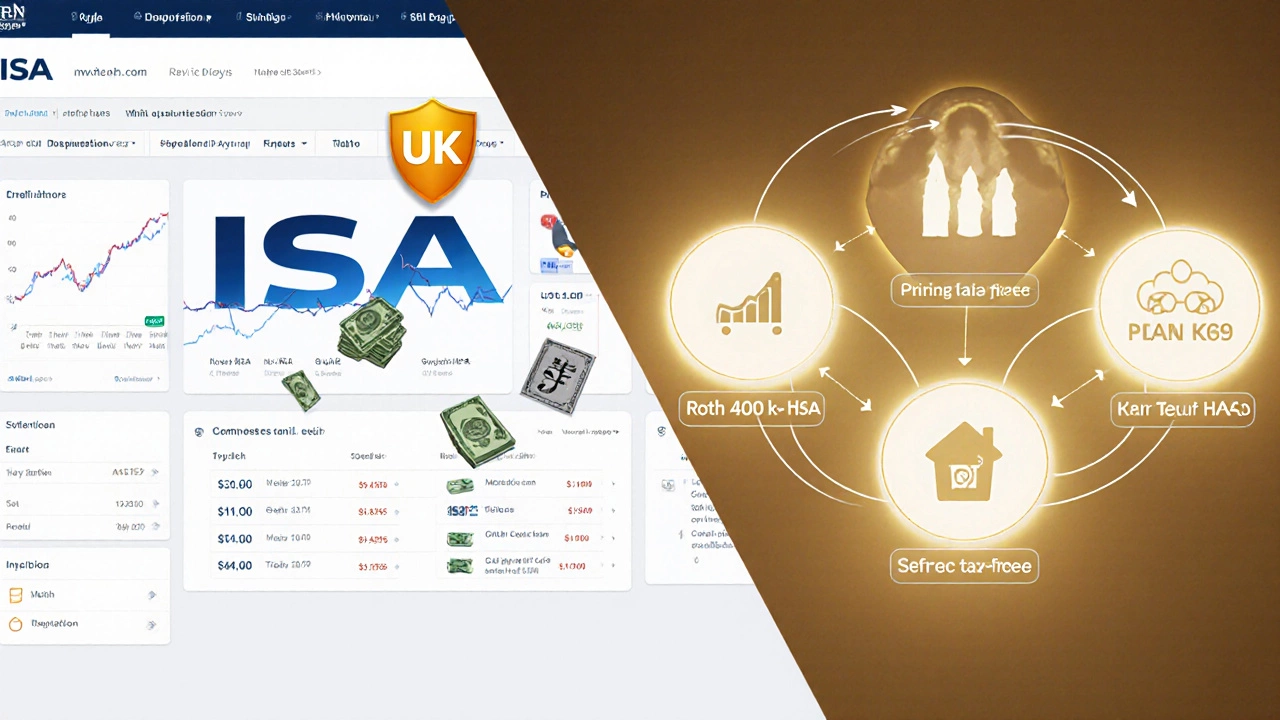Tax-Advantaged Accounts: What They Are and How They Save You Money
When you use a tax-advantaged account, a government-approved savings or investment account that gives you tax breaks to encourage long-term financial planning. Also known as tax-free or tax-deferred accounts, it lets your money grow faster because you either don’t pay taxes on contributions, earnings, or withdrawals—or you get a break upfront. This isn’t just for rich people or retirees. If you’re working, saving for a home, or planning for medical bills, these accounts are designed to help you keep more of your hard-earned cash.
One of the most common types is the 401(k), an employer-sponsored retirement plan where contributions come out of your paycheck before taxes. Many employers even match part of what you put in—that’s free money. Then there’s the Roth IRA, a retirement account where you pay taxes now but withdraw everything tax-free later. It’s perfect if you think your tax rate will be higher when you retire. In the UK, the ISA, an Individual Savings Account that lets you save or invest up to £20,000 a year without paying tax on gains or income. Also known as tax-free savings account, it’s one of the most powerful tools for UK residents. And if you’ve got medical expenses on the horizon, the HSA, Health Savings Account, lets you save for qualified medical costs with triple tax benefits: tax-deductible contributions, tax-free growth, and tax-free withdrawals for healthcare. These aren’t just accounts—they’re financial shortcuts built into the system to reward smart planning.
What ties them all together? They all let your money work harder. Instead of paying taxes every year on interest, dividends, or capital gains, your investments compound without being drained by the government. That’s how someone who starts early with just $200 a month can end up with hundreds of thousands more than someone who saves the same amount in a regular bank account. The key is using the right one for your situation. A 401(k) might be your best bet if you’re employed. An HSA is a hidden gem if you have a high-deductible health plan. And if you’re in the UK, an ISA can be your go-to for everything from stocks to cash savings.
What you’ll find below are real, no-fluff breakdowns of how these accounts actually work in practice—whether you’re trying to get student aid on a $50K income, wondering if the US has ISAs, or figuring out how to avoid paying extra taxes on crypto. These aren’t theory pieces. They’re guides written by people who’ve been there, made the mistakes, and found the workarounds. You don’t need a finance degree. You just need to know which account to use, when, and why.
What Is the US Version of an ISA? Tax-Advantaged Accounts Explained

The US doesn't have a direct equivalent to the UK's ISA, but Roth IRAs, Roth 401(k)s, and HSAs together offer similar tax-free growth. Learn how to combine them for maximum savings freedom.
Read More >>